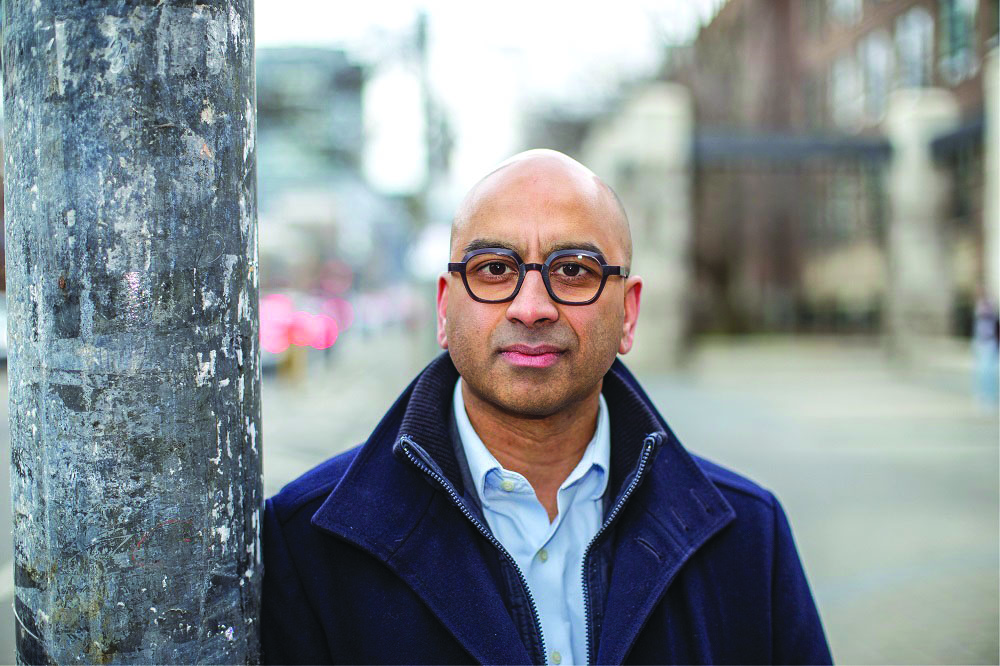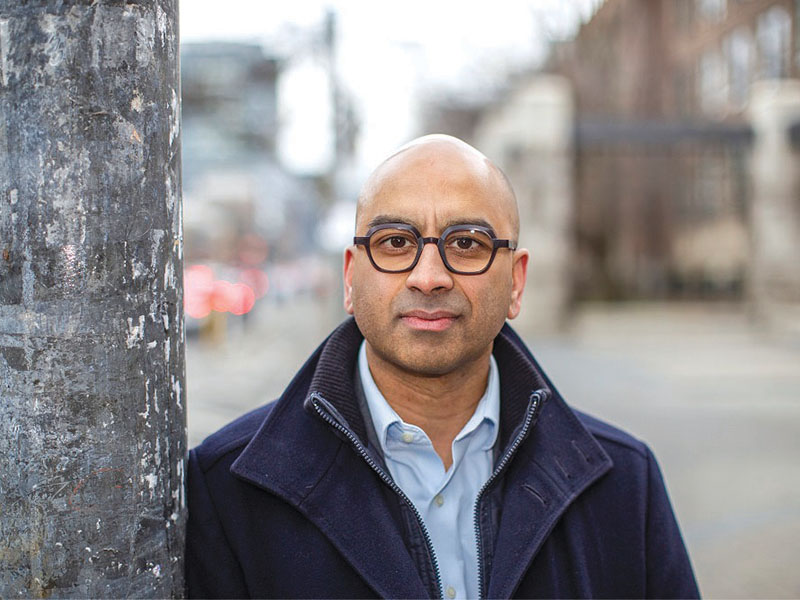
Prof. Randy Boyagoda
“You can point to brawling in the streets of Paris in the 13th century over rivalling theology professors, you can point to town-and-gown brawls in England in the 16th century, never mind the 1968 generation’s anti-war protests…”
To Randy Boyagoda, the University of Toronto’s new adviser on civil discourse, campuses have always contained the right ingredients for “controversy and convulsions” throughout the history of higher education — namely lots of young people being brought together at a transformative point of their lives and being asked to “think out loud about difficult things”.
So why has it taken until now for positions such as his —the first in Canada and one of a handful globally — to arise?
The short answer is Gaza. The author and English professor — whose new role will see him develop a plan for events, resources and initiatives designed to promote respectful dialogue — told Times Higher Education that it would be absurd to pretend his appointment is not related to the war and the “deep and corrosive” divisions it has stirred up.
What makes this situation different from the “convulsions” of the past for Prof. Boyagoda, is the “intensification of our connectivity” — young people on campuses receiving real-time information from Israel and Palestine, often about their own families. “That sense of connectivity has intensified the always present possibility of protest and controversy that I think to some degree is inherent in university life,” says Boyagoda.
Toronto, like many campuses, has had its share of free speech controversies. A campus imam, Omar Patel, was dismissed by the institution in January over a social media post linked to the Gaza conflict, which he claims was falsely attributed to him. Meanwhile, students have called for action to be taken against a psychology professor, Stuart Kamenetsky, over historic social media posts that some regard as Islamophobic.
Over all this looms Toronto’s long-standing employment of clinical psychologist, author and now right-wing “provocateur extraordinaire” Jordan Peterson, who resigned from the institution in 2022 but retains emeritus status.
Prof. Boyagoda, vice-dean for undergraduates in Toronto’s Faculty of Arts and Science, acknowledges that the furore around Prof. Peterson was a “contributing factor” to the university’s spiky campus climate. “I see myself not as an authority figure doing this but as someone contributing, making conversations possible that otherwise might not have been possible had I not been in the room,” he says.
According to Boyagoda, faculty and student bodies are increasingly looking to their institutions and leaders to issue position statements on global crises — as they largely did over Russia’s invasion of Ukraine, but then are hesitant to do so over the Israel-Hamas war. Prof. Boyagoda says that “statement culture” is a significant reason why the Palestine crisis has been so “incendiary” on campuses and argues that institutions should instead remain neutral on such matters. “I was struck by the immediacy and by the uniformity of the response in the support for Ukraine…it created an institutional precedent for universities demonstrating their public commitment in a geopolitical conflict,” he says.
Because universities help students become productive members of society, the world is “clearly seeking” help on this issue — to help graduates have tough conversations and to thrive in the workforce. “There is a great deal of public interest in the project, because our getting this right strikes me as a responsibility of the university to society at large,” he adds.
Also read: Gaza: Collateral institutional damage
